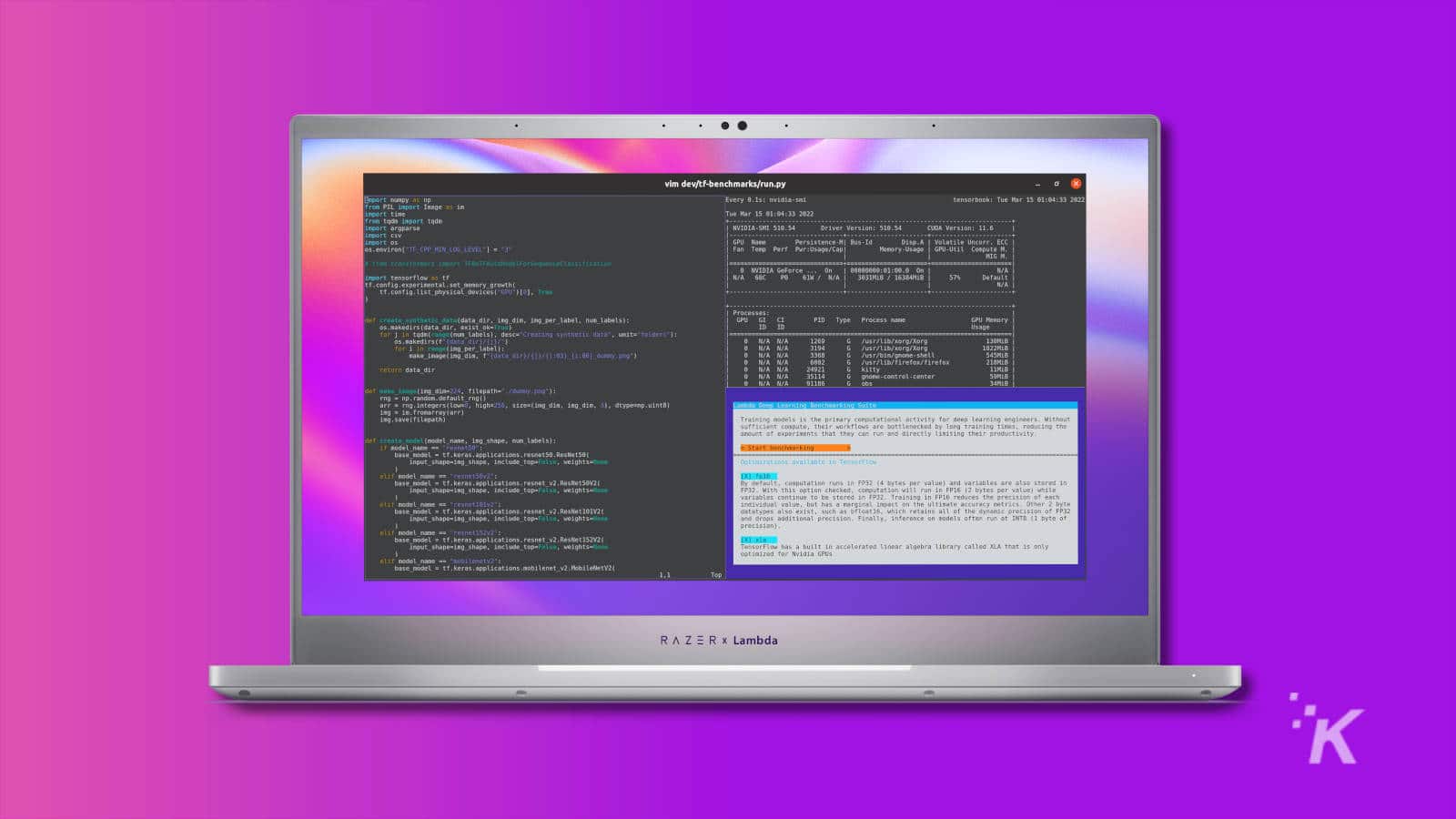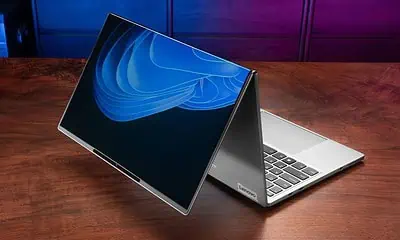Laptop
Razer now makes a Linux laptop, but not for gamers
It’s also the first Razer laptop created by a third-party.

Just a heads up, if you buy something through our links, we may get a small share of the sale. It’s one of the ways we keep the lights on here. Click here for more.
Razer now makes a Linux laptop. Well, technically a company called Lambda sells the laptop, but it’s built on top of last year’s Razer Blade 15.
The Razer x Lambda Tensorbook costs $3,500, and you get a top-flight piece of hardware for that cash. While it might seem like the perfect device for gamers, it’s intended for machine learning developers.
Powered by an 11th-gen Intel Core i7 CPU, Nvidia RTX 3080 Max-Q graphics, 2TB of NVMe storage, and 64GB of RAM; the Tensorbook is a powerhouse.
READ MORE: Razer’s new Stream Controller lets you easily control your PC
You also get a 165Hz 1440p display, two Thunderbolt 4 ports, HDMI 2.1, a UHS-III SD card reader, three USB3.2 Gen 2 Type-A ports, and a 3.5mm headphone/mic combo jack.
You also get WiFi-6E and Bluetooth 5.2 and it’s all housed in a silver chassis that’s 4.45lbs, just like the Razer Blade.
The first Razer laptop running Linux isn’t even from Razer
The real benefit here is that Lambda has done all the heavy lifting for you, software-wise. It comes ready-installed with Ubuntu Linux, with all the required drivers for the hardware included.
Lambda Stack is also preinstalled, giving budding Machine Learning devs all of the tools they need, like PyTorch, Tensorflow, CUDA, and cuDNN. The Tensorbook is all warrantied through Lambda, and you can pay extra to get premium support access.
READ MORE: Razer resurrects the DeathStalker name with three new keyboards
Lambda already provides hardware to “thousands of research groups” so it’s not a company that’s just going to disappear and leave you if you have issues with your expensive Razer Linux laptop.
Machine learning tools use up all of the power of any hardware they’re running on. That means heat, and it’s inside a very slim package in the Tensorbook. Lambda doesn’t mention the heat in its FAQ pages, but it’ll have to do something to limit potential issues.
The good thing here is that machine learning doesn’t require high clock rates, so it can probably throttle the hefty hardware inside the laptop to stop it from getting too hot.
Have any thoughts on this? Let us know down below in the comments or carry the discussion over to our Twitter or Facebook.
Editors’ Recommendations:
- Razer is getting into the sneaker game because screw it, why not
- How to turn an old laptop or Mac into a Chromebook
- Razer teamed up with Fossil for its first dive into the smartwatch world
- Can these smart glasses finally replace your laptop?
Just a heads up, if you buy something through our links, we may get a small share of the sale. It’s one of the ways we keep the lights on here. Click here for more.































